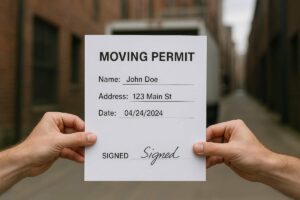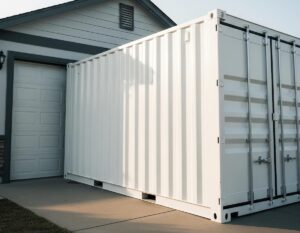Creating a moving budget is critical in preparing for a successful relocation. It encompasses forecasting the expenses you will likely encounter, from hiring movers to purchasing packing supplies. Efficient budgeting ensures that your move is organized and financially manageable. By analyzing each potential cost, you can develop a strategy that accommodates unexpected expenses and safeguards against financial strain.
When planning your move, it’s important to consider both the obvious and hidden costs. The size of your move, the distance to your new home, and the services you require all contribute to the total cost. Whether you’re hiring a full-service moving company or taking a DIY approach, each choice has associated costs. Detailing these expenses beforehand gives you a clearer picture of your financial commitment and allows you to adjust as needed.
Initially, outline all moving-related categories, such as moving company fees, packing materials, transportation, and additional storage needs. Assign estimated costs to each category, considering that actual costs may vary. Remember to include a contingency fund in your budget to cover unforeseen expenses. With a comprehensive moving budget in place, you can confidently approach your relocation, knowing that you are prepared for the financial aspects of your move.
Fundamentals of Creating a Moving Budget
Creating a precise moving budget ensures you control your finances during the unpredictable relocation process. By understanding the various expenses, you can set a realistic budget that accounts for all aspects of your move.
Understanding Moving Budget Components
When planning your budget, you must account for all moving expenses. Break these down into clear categories such as:
- Moving Supplies: This will include boxes, packing materials, and tape.
- Professional Movers: If you’re hiring help, this category encompasses their fees, which can fluctuate based on distance and the volume of your belongings.
- Truck Rental: Should you decide to move yourself, factor in the rental cost, insurance, and any additional equipment you might need, like a dolly.
- Packing Materials: Special items or fragile possessions might require more than boxes, so consider bubble wrap, packing peanuts, or custom crating.
- Insurance: Purchasing additional insurance for valuable items is a prudent decision.
Estimating Transportation Costs
The core of your moving budget will often revolve around transportation costs. For truck rental, factor in the base rental price, along with:
- Fuel: Depending on the distance, calculate the expected fuel expenses. Use current gas prices and the rental’s miles per gallon (MPG) to get an estimate.
- Mileage: Some rentals come with a set number of miles, after which you pay per extra mile. Estimate your total mileage and compare it to what’s included.
Professional movers should obtain quotes from several companies to find the best rate. Make sure these quotes include long-distance travel costs, if applicable.
Considering Additional Moving Services
If you need services beyond the basic transport of goods, include those in your budget:
- Packing/Unpacking Services: Some moving companies offer this at additional costs.
- Storage: Storage fees may apply if there’s a gap between your move-out and move-in dates.
- Special Handling: Professional handling could increase your budget for heavy or valuable items such as pianos or art.
Remember to create a contingency fund by setting aside approximately 5% of the estimated budget to cover unexpected costs.
Breaking Down Cost Variables
Understanding the variables affecting your moving costs is crucial to developing an accurate budget. These variables typically include distance, size of the move, and whether it’s local or long-distance.
Distance and Move Size
The cost is calculated hourly for a local move, generally covering areas within the same city or town. The size of your home and the volume of belongings impact the number of hours professional movers will work. Consider that larger items like furniture and appliances may require additional manpower or special equipment, increasing the hourly rate.
Local vs. Long-Distance Move Implications
Regarding long-distance moves, which span from one city to another or across state lines, costs are calculated by the weight of your items and the distance traveled. Fuel charges, toll fees, and special handling for oversized items influence these costs. Insurance premiums should also be factored into a long-distance moving budget for peace of mind during transit.
Managing Packing and Hidden Expenses
You must consider the visible and hidden costs when preparing for a move. Effectively managing packing expenses and anticipating unexpected costs will help maintain your budget.
Packing Supplies and Equipment
To ensure your belongings are secure, you’ll need packing supplies such as boxes, tape, bubble wrap, labels for categorization, and moving blankets to protect furniture. These costs can add up quickly, so it’s wise to calculate your needs in advance. Here’s a breakdown to consider:
-
- Boxes: Depending on size, $1-$4 each
- Packing Tape: Approximately $3 per roll
- Bubble Wrap: Around $20 for a large roll
- Furniture Covers/Moving Blankets: $10-$15 each
- Boldly label each box with its contents and intended room for a smoother unpacking process.
-
- Maintain an inventory of your items, which can help you keep track of your belongings and assist in the organization.
Anticipating Hidden Costs and Emergency Fund
Unforeseen expenses can emerge during a move. For example, you might need extra packing services if you cannot pack everything yourself or encounter a last-minute change in your moving schedule. Create a contingency by allocating 5% of your budget to an emergency fund to cover these hidden costs without stress. This fund can be used for:
- Last-minute packing supply runs
- Additional charges for heavy or oversized items
- Extended rental periods for moving equipment
Planning for these extra expenses makes you less likely to be caught off guard. Remember, the key is not just to expect the unexpected but also to financially prepare for it.
After the Move: Handling Ongoing Expenses
Successfully relocating to your new home doesn’t signify the end of expenses. Post-move costs can arise unexpectedly when you begin to settle in.
Post-Move Living Adjustments
When you’ve completed your move, you must know several ongoing expenses that will influence your budgeting. These can include:
- Storage Fees: If you cannot immediately move all your belongings into your new home, you may need a storage unit. Monthly storage fees can vary widely depending on the size of the unit and its location. Check local rates and factor this into your budget if necessary.
- Professional Cleaning Services: Many rental agreements stipulate that the property must be left in a clean state, often necessitating professional cleaning services. These cleaning fees can range from a flat rate for a basic cleaning to a higher charge for deep cleaning.
- Security Deposit: If you rent, you might have to pay a new security deposit. This cost is typically equivalent to one month’s rent. Some places will require more, especially with pets.
- Rental Equipment: For any items you’re moving or assembling yourself, you may need to rent equipment such as a dolly or moving blankets. Take note to return these promptly to avoid additional fees.
- Unpacking Services: Hiring professionals to help you unpack can quickly get expensive. If this service is essential for you, get quotes and ensure you’ve accounted for this in your initial moving budget to avoid surprises.
- Declutter: Post-move is an ideal time to declutter. Selling items you no longer need can offset some of your moving expenses.
- Storage & Organization: Investing in organization solutions for your new space can prevent clutter. While not an immediate expense, this can save you money in the long term by keeping you from renting additional storage space.
Adjust your household budget to accommodate these expenses and monitor your spending closely to maintain financial stability after your move.








